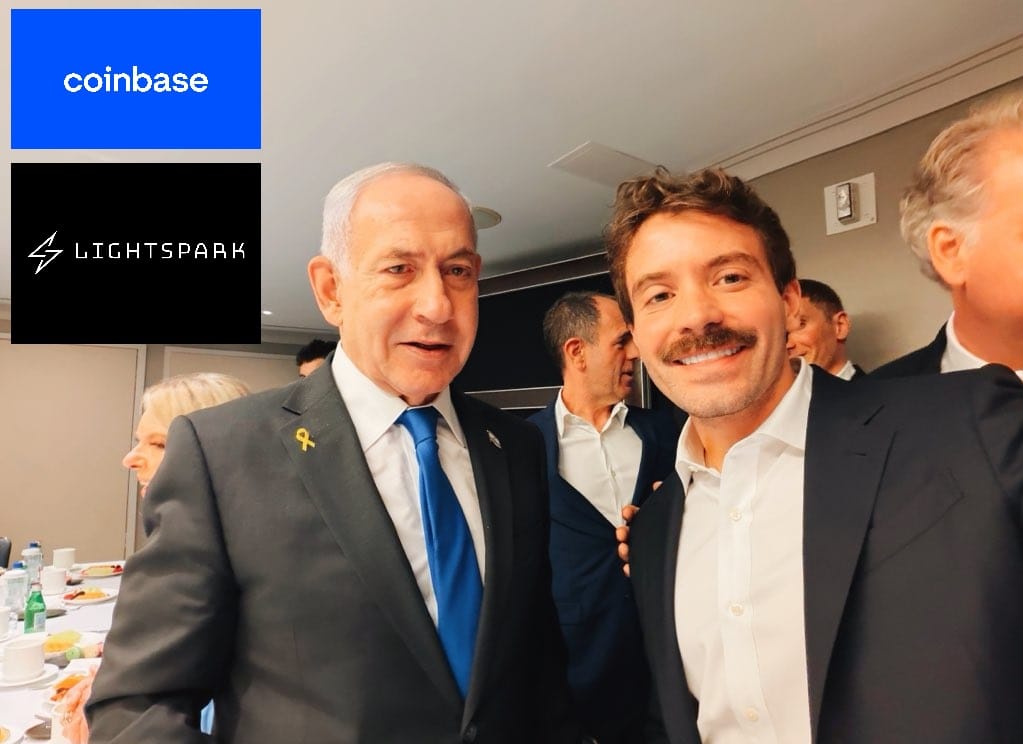Coinbase and Lightspark Face Backlash Over Support for Vercel CEO Netanyahu Photo

The tech world erupted in controversy this week when Guillermo Rauch, CEO of the AI cloud platform Vercel, shared a selfie with Israeli Prime Minister Benjamin Netanyahu. The photo, posted on September 29 after a private meeting in New York focused on AI's role in Israel's economy, quickly drew sharp criticism amid the ongoing conflict in Gaza. Developers and users accused Rauch of endorsing a leader facing international scrutiny for actions described by a United Nations commission as genocidal.
Rauch's caption highlighted discussions on AI, education, and tools for developers, framing the encounter as optimistic for peace and progress. Yet the image struck a nerve, prompting thousands of online reactions over the past few days. Social media filled with announcements of users migrating to alternatives like Netlify or Cloudflare, while one software engineer publicly resigned and urged donations to Gaza relief efforts.
Vercel's traffic reportedly dropped by 20% in the immediate aftermath, with over 5,000 developers claiming to have canceled accounts. Prominent voices in the tech community amplified the discontent, labeling the post as tone-deaf and a betrayal of ethical standards in innovation. The swift user exodus underscores how personal stances from leaders can ripple through professional networks, especially in a sector built on open collaboration.
Coinbase and Lightspark Amplify the Divide
As the backlash intensified, executives from major cryptocurrency firms waded into the fray, drawing their own waves of criticism. Viktor Bunin, a protocol specialist at Coinbase, publicly defended Rauch with a comment praising Israel as a force for good and urging resilience against detractors. The response, tied to Bunin's Coinbase affiliation in his profile, ignited a firestorm that extended to the exchange itself, with users demanding boycotts and tagging CEO Brian Armstrong.
Delete Coinbase pic.twitter.com/p2TmOlQdl4
— L0la L33tz is more fun on Nostr (@L0laL33tz) September 30, 2025
Calls to delete Coinbase accounts surged, resurfacing past grievances like the company's funding ties to the U.S. Army, which some view as clashing with cryptocurrency's decentralized ethos. Bunin eventually deleted his comment, but screenshots preserved the exchange, fueling demands for accountability and even his dismissal. This incident highlights the delicate balance crypto platforms must strike between individual expression and brand neutrality in polarized global debates.
Lightspark, a Bitcoin focused company led by David Marcus, encountered similar turbulence when its CEO posted support for Rauch under the original photo, declaring himself on team Guillermo. The statement on September 30 positioned Lightspark alongside the controversy, prompting dismissals and to "delete Lightspark too," with questions about the firm's relevance. Industry veteran David Shares noted Marcus blocking critics, suggesting an attempt to contain the fallout that might only deepen the reputational hit.
The Vercel CEO caught a lot of hate for his post with Netanyahu. Now @Lightspark CEO David Marcus is too. He’s single handedly ruining his business by siding with genocide and proudly being on the wrong side of history. He wrote under the Vercel CEO’s post “I am team Guillermo”.… pic.twitter.com/onh3oQeI3w
— DΛVID (@DavidShares) October 3, 2025
Unlike Bunin, Marcus has kept his post intact so far, standing firm amid the mounting pressure. Observers in the crypto space point to this as a risky move, given Lightspark's emphasis on innovative payment solutions in a community sensitive to geopolitical alignments. The episode serves as a reminder that endorsements in tech and finance can swiftly mobilize users, testing loyalties in an industry already navigating regulatory and ethical minefields.
The broader fallout reveals fractures within the intersection of AI, tech, and cryptocurrency, where innovation often collides with real-world tensions. Firms like Vercel, Coinbase, and Lightspark now grapple with the tangible costs of leadership visibility on social platforms. As developers and investors voice their choices through actions, the sector may see a push toward more deliberate public positioning in the days ahead.

